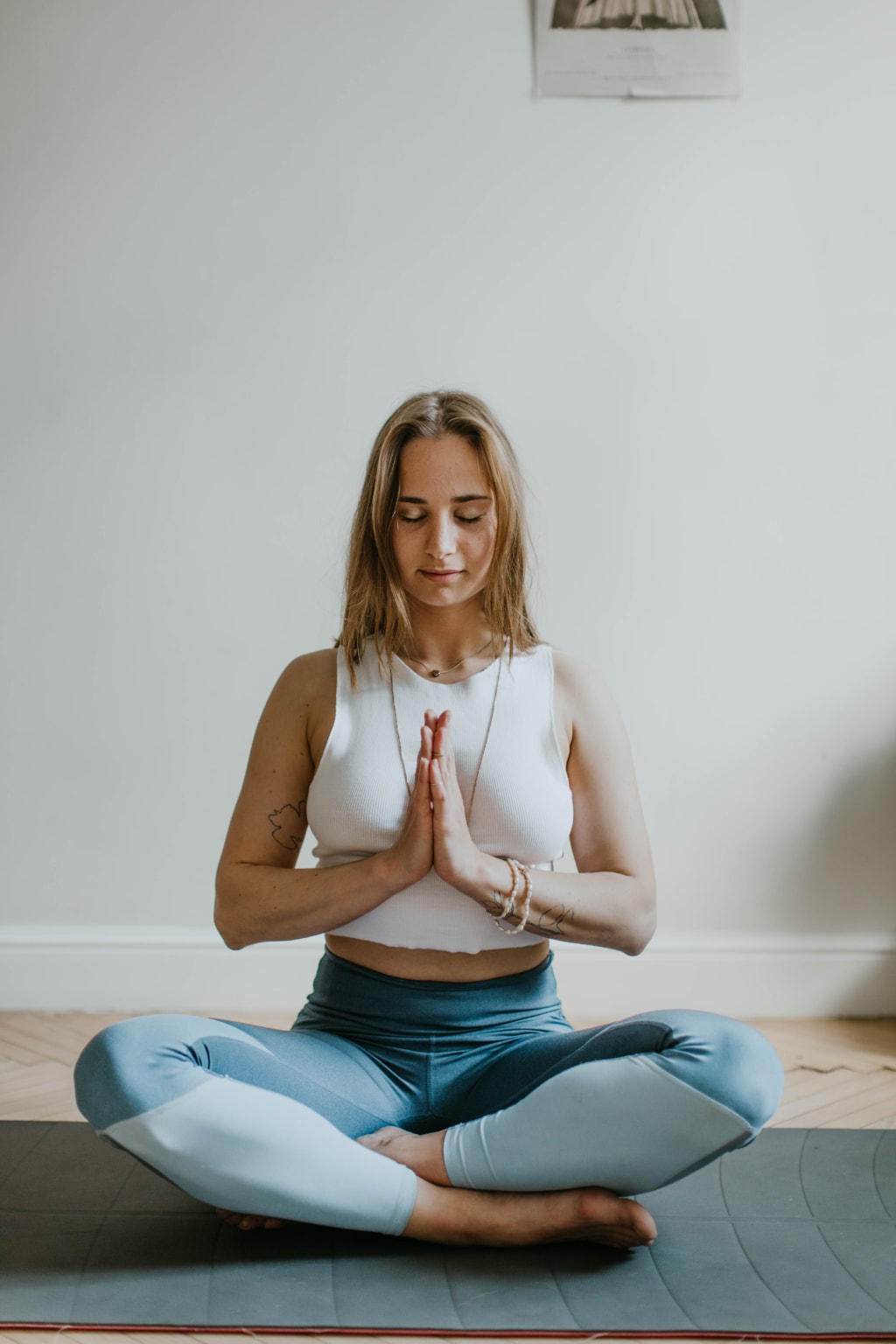SILENCE VS MEDITATION
The Contrast Between Silence and Meditation

INTRODUCTION
Silence and meditation are two concepts that have become increasingly popular in the modern world. Both have been used as tools for personal growth, healing, and spiritual development. However, while they share some similarities, they are fundamentally different in nature. In this article, we will explore the contrast between silence and meditation, their respective benefits, and how they can be incorporated into our daily lives.
What is Silence?

Silence is the absence of sound, the state of being quiet, and the absence of noise. Silence can be external, meaning the lack of external noise, or internal, meaning the absence of mental chatter. Silence is a powerful tool for healing and personal growth, and it has been used by many spiritual traditions as a means of connecting with the divine.
Silence can be practiced in many ways, including spending time alone in nature, sitting in a quiet room, or participating in a silent retreat. The practice of silence can help us to become more aware of our thoughts and emotions, and to connect with our true selves.
Benefits of Silence
- Increased self-awareness: When we spend time in silence, we become more aware of our thoughts, emotions, and physical sensations. We are able to observe our inner world without judgment or distraction, which can lead to a deeper understanding of ourselves.
- Reduced stress: Silence has been shown to reduce stress and anxiety levels. When we are in a quiet environment, our bodies are able to relax and our minds can calm down, which can help to reduce the physical and mental symptoms of stress.
- Increased creativity: Silence can stimulate our creativity and imagination. When we are not distracted by external stimuli, we are better able to tap into our creative potential and generate new ideas.
- Improved communication: Spending time in silence can improve our communication skills. When we are more aware of our own thoughts and emotions, we are better able to express ourselves in a clear and concise manner.
What is Meditation?

Meditation is a mental practice that involves focusing one's attention on a particular object, thought, or activity. Meditation has been practiced for thousands of years and is used by many spiritual traditions as a means of connecting with the divine and achieving enlightenment.
There are many different types of meditation, including mindfulness meditation, mantra meditation, and transcendental meditation. Each type of meditation has its own unique benefits and can be practiced in different ways.
Benefits of Meditation
- Reduced stress: Meditation has been shown to reduce stress levels and improve overall well-being. When we meditate, our bodies are able to relax and our minds can calm down, which can help to reduce the physical and mental symptoms of stress.
- Increased self-awareness: Meditation can help us to become more aware of our thoughts, emotions, and physical sensations. By focusing our attention on the present moment, we are able to observe our inner world without judgment or distraction.
- Improved concentration: Meditation can improve our ability to focus and concentrate. By training our minds to focus on a particular object or thought, we are able to improve our ability to concentrate on other tasks as well.
- Improved emotional well-being: Meditation can improve our emotional well-being by reducing symptoms of anxiety and depression. By becoming more aware of our thoughts and emotions, we are able to better understand and manage them.
The Contrast Between Silence and Meditation
While both silence and meditation can be used as tools for personal growth and spiritual development, they are fundamentally different in nature. Silence is a state of being, while meditation is a mental practice.
- Silence involves being in a quiet environment and experiencing the absence of noise. It is a passive state that requires no effort or focus. Meditation, on the other hand, involves actively focusing one's attention on a particular object or thought. It is an active practice that requires focus, discipline, and commitment.
- Silence can be practiced in many ways, while meditation is typically practiced in a specific way, such as focusing on the breath or repeating a mantra. Meditation is a structured practice with specific techniques and goals, while silence is more open-ended and can be experienced in a variety of ways.
The benefits of silence and meditation also differ in some ways. While both can reduce stress and increase self-awareness, meditation is more focused on improving concentration and emotional well-being. Silence, on the other hand, can be more focused on increasing creativity and improving communication skills.
How to Incorporate Silence and Meditation into Daily Life
Incorporating silence and meditation into daily life can be challenging, especially in a world that is filled with noise and distractions. However, with practice and commitment, it is possible to make these practices a part of your daily routine.
Here are some tips for incorporating silence and meditation into your daily life:
- Start small: If you are new to silence and meditation, start with just a few minutes each day. Gradually increase the amount of time you spend in silence or meditating as you become more comfortable with the practice.
- Create a quiet space: Create a quiet space in your home where you can meditate or spend time in silence. This could be a spare room, a corner of your bedroom, or a quiet spot in your backyard.
- Use guided meditations: If you are having trouble meditating on your own, try using guided meditations. There are many apps and websites that offer guided meditations for free or for a small fee.
- Schedule time for silence and meditation: Make time for silence and meditation in your daily schedule. This could be first thing in the morning, during your lunch break, or before bed.
- Find a community: Joining a community of people who practice silence or meditation can be a great way to stay motivated and learn new techniques. Look for local meditation or yoga studios, or join an online community.

CONCLUSION
In conclusion, silence and meditation are two powerful tools for personal growth, healing, and spiritual development. While they share some similarities, they are fundamentally different in nature. Silence is a state of being, while meditation is a mental practice that involves focusing one's attention on a particular object or thought.
Both silence and meditation have a range of benefits, including reducing stress, increasing self-awareness, and improving emotional well-being. By incorporating these practices into our daily lives, we can experience greater peace, clarity, and connection with ourselves and the world around us.
Disclaimer:
The information presented in this article is for educational and informational purposes only. The content is not intended to be a substitute for professional medical advice, diagnosis, or treatment. Always seek the advice of your physician or other qualified healthcare provider with any questions you may have regarding a medical condition.
The author and publisher of this article make no representations or warranties with respect to the accuracy or completeness of the contents of this article and specifically disclaim any implied warranties of merchantability or fitness for a particular purpose.
The author and publisher shall in no event be liable for any loss of profit or any other commercial damages, including but not limited to special, incidental, consequential, or other damages. The information contained in this article is subject to change without notice.
The reader of this article assumes full responsibility for the use of the information contained herein. The author and publisher of this article disclaim any liability whatsoever for any direct, indirect, consequential, or punitive damages arising out of the use or inability to use the information contained in this article.
Lastly, we would be grateful to accept any form of token donated to support the team behind this article. Thank you
About the Creator
HALFAHUB
Happy Life Fitness Associate Hub (HALFAHUB) is a general health and fitness poised group enthused with desire to bring every refined, researched and approved knowledge on health and wellness through all niches that encourages everyone.
Enjoyed the story? Support the Creator.
Subscribe for free to receive all their stories in your feed. You could also pledge your support or give them a one-off tip, letting them know you appreciate their work.






Comments
There are no comments for this story
Be the first to respond and start the conversation.